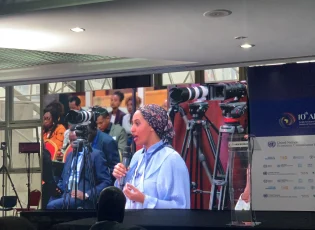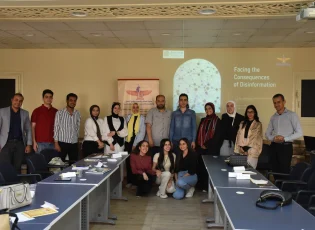Within the activities of the Elections Network in the Arab Region, Maat’s delegation started the first stage of the international monitoring of the intended parliamentary elections in Jordan on January 23rd, 2013.
Maat for Peace, Development and Human Rights is a founding member, member of the executive office, and local coordinator of the Elections Network in the Arab Region has a delegation of five members as part of 53 counselors from 14 Arab states supported by the Swiss Embassy in Cairo to provide the logistical support for the delegation during its stay in Amman, Jordan.
The 17th round of the parliamentary elections based on the mixed system combining between relative lists for both (parties and individuals) by 27 seats from 150 parliamentary seat by 18%, when the rest of the parliamentary seats are allocated for the individual system.
Concerning the relative lists, the whole Kingdom of Jordan is considered one constituency, both political parties and individuals are required to offer a list of 9 up to 27 candidates, when the individual system divides the Kingdom into 45 constituencies and are allocated between 1 and 5 seats per each.
Approximately 800 candidates and 61 electoral lists are competing in the parliamentary elections under the participation of the majority of political parties (about 30), when three prominent parties are boycotting the elections including; the Islamic Action Front (IAF), Jordanian Communist Party (JCP), and Jordanian Democratic Popular Unity Party (JDPUP).
Maat counselors attended the preparatory meetings for the monitoring operations on January 22nd, 2012, as well as conducting a meeting with the Minister of Political Development in Jordan, and are expected to have a meeting with the Independent Election Commission of Jordan (IEC), the delegation was also keen on communicating with some of the concerned and specialized local organizations to recognize their insights on the monitoring process.
Despite the significant positive changes on the legislative and procedural atmosphere of the electoral process since 2010, in terms of allocating seats for party lists, increasing the women representation between 12 and 15 seats, along with establishing an independent body to manage the electoral process instead of the Ministry of Interior, beside the fact that the Independent Election Commission of Jordan (IEC) responds positively to the recommendation of civil society organizations, for example, seven candidates are charged with offering electoral bribes.
Some of the primary observations on the legislative and procedural atmosphere in Jordan include the optional registry system which limits the participation in the electoral process, the allocated percentage for relative lists are much fewer than its similars in Egypt (66) and Libya (40%), many actors have reservations on the one vote for each voter system because the voter is only allowed to choose one candidate even when the constituency has more than one seat to be voted for.
In general, Maat and its counselors are commending the Independent Election Commission’s concern to give more permissions to local and international monitors, which opens the door before developing the legislations and procedures of the electoral process in the future in Jordan depending on statements and reports from monitoring agencies.










